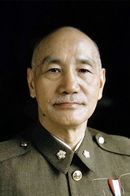Chiang Kai-shek, a pivotal figure in modern Chinese history, was born on October 31, 1887, and passed away on April 5, 1975. Throughout his illustrious career, he played multiple roles, including politician, revolutionary, and general, leaving an indelible mark on the Republic of China.
As the leader of the Republic of China, Chiang Kai-shek held the reins of power from 1928 until his death in 1975. His government initially operated from mainland China, but after being defeated in the Chinese Civil War by the Chinese Communist Party in 1949, he relocated to the island of Taiwan, where he continued to lead the Republic of China.
Chiang Kai-shek's impressive career was marked by his leadership of the Nationalist Kuomintang (KMT) party, which he helmed from 1926 until his death. Additionally, he served as the commander-in-chief of the National Revolutionary Army (NRA),earning the nickname Generalissimo, a testament to his military prowess and authority.
Throughout his tenure, Chiang Kai-shek was a dominant figure, exercising significant influence over the Nationalist Kuomintang party and the National Revolutionary Army. His legacy continues to be felt, with his leadership and military prowess remaining an integral part of Chinese history.

















